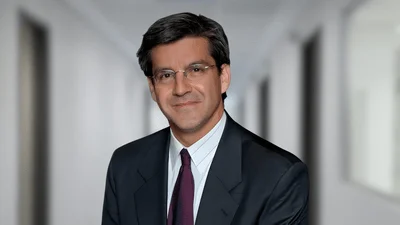Sen. Heather Steans at Tuesday's press conference in Chicago.
Sen. Heather Steans at Tuesday's press conference in Chicago.
Legalizing cannabis is being seriously considered in Illinois.
At a press conference Tuesday before a House and Senate joint committee hearing on the Economic Development and the Cannabis Regulation and Taxation Act in Chicago, Sen. Heather Steans (D-Chicago) and Rep. Kelly Cassidy (D-Chicago) discussed decriminalizing marijuana.
If passed, SB316 and HB2352, respectively sponsored by both lawmakers, would legalize marijuana in the state, making it the ninth state, along with Washington, D.C., to decriminalize the drug.
.jpg)
“It would enable individuals to buy and possess up to 28 grams or grow five plants just for recreational adult use, and (those) under 21 would not be permitted in anyway shape or form,” Steans said.
As of January 2017, the states of Alaska, California, Colorado, Maine, Massachusetts, Nevada, Oregon, and Washington and Washington D.C., allow adult recreational use of marijuana.
According to Steans, prohibition does not work in Illinois.
“It is estimated that 750,000 people use cannabis right now, but we only have about 24,000 people with medical cannabis cards,” Steans said. “That is only about 3 percent of the estimated population, so 97 percent of the cannabis sales are on the black market.”
She said drug dealers on the street selling the product are not concerned about the quality of cannabis or the age of those buying it. She said legalization in other states has been shown to improve the quality of the drug and reduce the black market sales.
“Then you can tax and regulate it properly,” Steans said. “We have estimated it could bring into Illinois about $350 to 700 million dollars.”
Cassidy followed up on Steans' comments, saying they have discussed decriminalization in a very deliberate fashion.
“We have looked at the law enforcement prospective and the success of other states and have crafted this bill on what other states (have) done right and what they had wished they (had) done differently,” Cassidy said, adding public health, youth access and social justice components will be scrutinized.
Joining the two lawmakers was Rick Steves, a policy reform activist from Washington state who has helped other states legalize marijuana, said he began working to decriminalize the drug overseas.
“My friends in Europe said here in the United States we are so quick in America to legislate morality and that society has to make a choice – tolerate alternative lifestyle or build more prisons,” Steves said.
He said the fight to legalize the drug across America is not a pro-pot movement but an anti-prohibition movement. He detailed how he was trailed by law enforcement during his discussions to decriminalize the drug to only have officials eventually come to understand the racist views on the illegal drug sales.
“Seventy thousand people are locked up in our country every year and 700,000 people are arrested for the possession of marijuana and non-violent crimes,” Steves said. “They are not rich white people, they are poor people and black people.”
According to the activist, the 2012 legalization of cannabis in Washington state was backed by the NAACP and Children’s Alliance.
“We had people realizing we had to take crime out of the equation and treat marijuana as a health challenge and education challenge,” Steve said. "Marijuana is here today, and it is going to be here tomorrow. What we need to do is take that black market down and turn it into a highly regulated and highly taxed legal market.”





 Alerts Sign-up
Alerts Sign-up